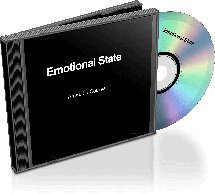Saturday 31 October, 5.15pm until 6.30pm, Upper Gulbenkian Gallery Keynote Controversies
 According to the latest British Social Attitudes survey, fears that Britain has become a ‘therapy culture’ are completely unfounded. Its research found that although more adults and young people like to talk about their emotions compared to the past, and think this is a good thing, there is no evidence that they are using higher levels of therapeutic support. The survey therefore concludes that fears of a ‘therapy culture’ are unfounded.
According to the latest British Social Attitudes survey, fears that Britain has become a ‘therapy culture’ are completely unfounded. Its research found that although more adults and young people like to talk about their emotions compared to the past, and think this is a good thing, there is no evidence that they are using higher levels of therapeutic support. The survey therefore concludes that fears of a ‘therapy culture’ are unfounded.
Arguably, however, this misses the point about what a therapy culture is. If ‘therapy culture’ does not stand out as a distinct aspect of contemporary society, perhaps this is because it has become internalised in all areas of life. In Britain and America, therapeutic assumptions permeate lifestyle magazines, television and popular literature, with therapeutic ‘problem-solving courts’ in the US, interventions to develop emotional well-being and resolve conflict in schools, colleges and universities, parenting and anger management classes, courses in emotional literacy and well-being. Counselling is even touted as a suitable response to rising unemployment in the face of recession. Meanwhile, therapeutic assumptions and practices are embedded in aid interventions, truth and reconciliation commissions, reconstruction programmes in war-torn countries and rehabilitation programmes for soldiers.
There is very little criticism of these developments, or even recognition that they represent a distinct cultural trend. Are people simply becoming more empowered and responsible for their emotional well-being? What are the positive benefits of interventions for emotional well-being here and abroad? Is attention to emotional well-being a progressive sign of social justice? Or does it undermine our capacity to cope with life without official support?
This session is co-sponsored by the ESRC with Oxford Brookes University and the University of Birmingham.
Listen to the session audio…
[NB: Poor quality audio from 00:50 to 2:10. Opening speeches from 08:15]
Other formats are available here
 | Nicola Barden head of counselling, University of Portsmouth; former chair, British Association for Counselling and Psychotherapy |
 | Kathryn Ecclestone professor of education, University of Sheffield; author, Governing Vulnerable Subjects in a Therapeutic Age (forthcoming) |
 | Professor James L Nolan professor of sociology; chair of department of anthropology and sociology, Williams College; author, The Therapeutic State: justifying government at century's end |
 | Professor Andrew Samuels professor, analytical psychology, University of Essex; training analyst, Society of Analytical Psychology |
| Chair: | |

|
Professor Dennis Hayes
professor of education, University of Derby |
Has Britain actually witnessed the
Simon Anderson, Julie Brownlie and Lisa Given, SAGE Publications, 2009
 Why are American criminal justice innovations so influential even in countries characterized by strong dislike of American cultural imperialism? When legal institutions are imported from abroad is it possible to filter out wider cultural assumptions and practices?
Why are American criminal justice innovations so influential even in countries characterized by strong dislike of American cultural imperialism? When legal institutions are imported from abroad is it possible to filter out wider cultural assumptions and practices?
James L. Nolan, Princeton University Press, 21 April 2009
 The tyranny of emotional etiquette
The tyranny of emotional etiquette
The critique of Frank Furedi’s Therapy Culture in the current British Social Attitudes survey misunderstands the thrust of Furedi’s argument, and the extent to which emotional conformism has gripped modern Britain.
Jennie Bristow, spiked, 22 March 2009
 The silent ascendancy of a therapeutic ethos across the education system and into the workplace demands a book that serves as a wake up call to everyone.
The silent ascendancy of a therapeutic ethos across the education system and into the workplace demands a book that serves as a wake up call to everyone.
Kathryn Ecclestone & Dennis Hayes, Routledge, 4 July 2008
 In recent decades virtually every sphere of life has become subject to a new emotional culture. Professor Furedi suggests that the recent cultural turn toward the realm of the emotions coincides with a radical redefinition of personhood.
In recent decades virtually every sphere of life has become subject to a new emotional culture. Professor Furedi suggests that the recent cultural turn toward the realm of the emotions coincides with a radical redefinition of personhood.
Frank Furedi, Routledge, 2002
 An analysis of the commingling of the therapeutic and political cultures in America looking at trends such as the emotivist ethic, the pathologization of human behavior and the rise of a new priestly class in the state.
An analysis of the commingling of the therapeutic and political cultures in America looking at trends such as the emotivist ethic, the pathologization of human behavior and the rise of a new priestly class in the state.
James L. Nolan, New York University Press, 31 January 1998